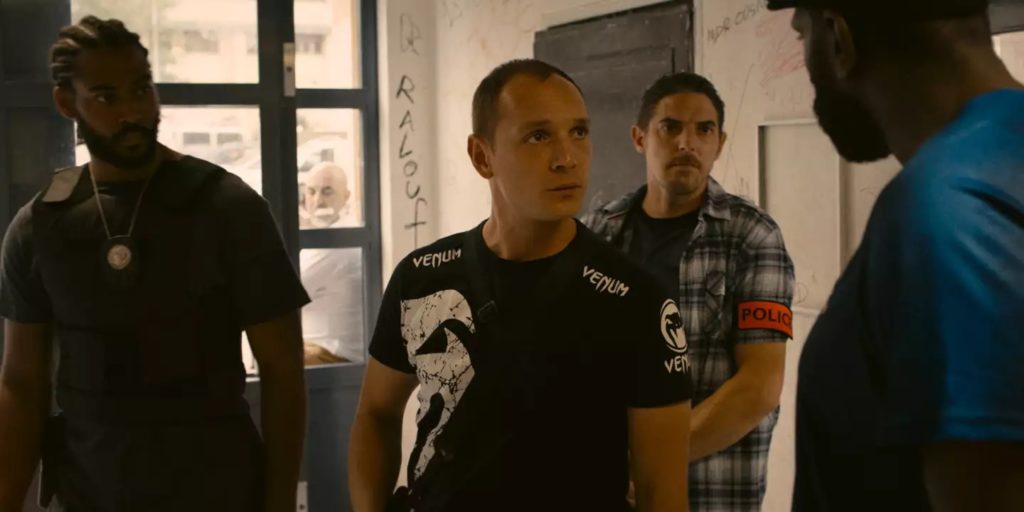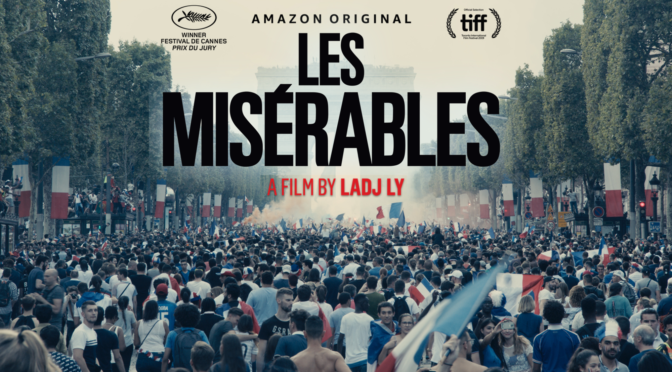Opening with a moment of unity and closing with something far different, Les Misérables follows three members of an anti-crime brigade in Paris. The film begins with a soccer match that has hundreds of locals shouting in solidarity for their national team but quickly shifts to its focus: the relationship between law enforcement and the citizens they serve. Corporal Ruiz (Damien Bonnard; Dunkirk) transfers into a new police unit in is placed on a team with Chris (Alexis Manenti) and Gwada (Djibril Zonga). He quickly realizes their methods and beliefs are very different from his own as they torment the community and reveal possible illicit connections to criminal groups. The film is not an adaption of Victor Hugo’s famous novel, but it shares many of the same themes of class struggles and takes place in some of the same locations a century and a half later.
Director Ladj Ly’s greatest gift is his control over crowds. The film carries a sense of unease with characters constantly in conflict. The police clash with the residents who clash with their mayor and with other factions. There is an omnipresent civil unrest that threatens to boil over into outright violence at any moment. Simple discussions immediately escalate into screaming matches between divided groups, seconds away from beating each other senseless. The message is one of pent-up frustration. Whether it’s their living conditions, their economic opportunities, or their treatment by the police, the people of this neighborhood have suffered injustice and it has manifested in a level of collective agitation that is a powder keg just looking for a spark.

The film questions, and answers, the police’s role in this chaos. Supposedly the protectors and agents of law and order, the street crime unit sees itself as the only thing keeping the neighborhood peaceful. Ruiz is a newcomer and is appalled by the actions of his teammates. They are self-righteous, unjust, and actively antagonistic. At times, their behavior is almost unbearable as Chris sees a teenager he finds attractive and threatens to molest her under the guise of a drug search. They view themselves as infallible and refuse to apologize for any of their harassment with a character even screaming “I am the law!”. Their beliefs and the realities of their behavior are shown in stark contrast.
Ly sees law enforcement that behaves in this manner as the progenitors of discord and violence in the community. He places special focus on the youth of this area who are tormented at an early age by the police. They learn to run away immediately, even when they have done nothing wrong, because they know that their innocence or guilt don’t factor into how they are treated. They become the true victims as Ly reinforces his thesis. The message can be a bit heavy-handed at times with characters like Chris being an indefensible tyrant, but Ly makes a compelling case for how systemic abuse by authorities can create and perpetuate a cycle of violence and discord in struggling communities.

4/5 stars.
